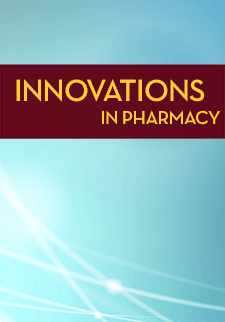Medication adherence and its relationship to the therapeutic alliance: Results from an innovative pilot study within a community pharmacy MTM practice
Janice Pringle
Michael Melczak
Arnie Aldridge
Margie Snyder
Randall Smith
DOI: https://doi.org/10.24926/iip.v2i1.216
Keywords: medication adherence, therapeutic alliance, medication therapy management
Abstract
Objectives: To determine whether patients who received Medication Therapy Management (MTM) from community pharmacists using a brief scale to measure Therapeutic Alliance (i.e., MTM + TA) would show better medication adherence than patients who received MTM without use of the TA scale (MTM only).
Design: Quasi-experimental, using a direct intervention group (MTM + TA) and a comparison group of randomly selected claims records from patients who received only the MTM service (MTM only). We used a doubly robust propensity score approach to estimate the average effect of therapeutic alliance on medication adherence. The analysis was limited to the following broad medication categories: antihypertensives, antidiabetic agents, and antihyperlipidemics.
Setting: The direct intervention group included patients receiving MTM services from pharmacists in a community pharmacy chain setting.
Participants: After matching with claims data, the direct intervention group was n=117, with an average age of 76.4. The comparison group was n=146, with an average age of 76.2.
Intervention: Administration of two brief scales designed to measure general health outcomes and TA within the context of MTM (with focus on TA scale administration). Main Outcome Measures Proportion of Days Covered (PDC) and PDC80.
Results: Using the therapeutic alliance scales in the context of community pharmacist-provided MTM was associated with a 3.1 percentage point increase in patients' overall PDC (p<.001) and an increase of 4.6 percentage points in PDC80 (p=.02) as compared to patients receiving MTM without use of the therapeutic alliance scales.
Conclusion: Measuring therapeutic alliance in the context of MTM is associated with improved medication adherence and represents one strategy for enhancing the effectiveness of MTM encounters. Furthermore, administration of the therapeutic alliance scales used very little time; therefore it is likely feasible for pharmacists to routinely use the scales in their practice.
Type: Original Research


